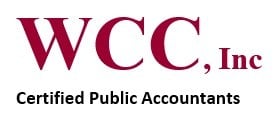What Do You Mean I Have to Pay Sales Tax?
March 17, 2023 by Kelly Jackson Hardy
In the case of our family, a trip to the local farm supply store might involve the purchase of some cattle supplies, cat food, a soda and a bag of gummy bears. At the register, the cashier asks, “Are you tax exempt”? Over the years, more often than not I’ve seen that question answered “Yes”…transaction completed…next customer. The problem is the sale likely isn’t tax exempt or at least not all of it.
Most states do have some form of ag exemption which generally involves equipment, inputs, and replacement parts but every state is different and specific. Here in Illinois, the equipment exemption applies to “new and used farm machinery and equipment the buyer certifies will be used primarily for production agriculture”. From this you may assume that all equipment used on the farm qualifies, but again it does not. The Illinois Code actually defines production agriculture as follows: “With respect to crops, production agriculture is limited to activities necessary in tilling the soil, planting, irrigating, cultivating, applying herbicide, insecticide, or fertilizer, and harvesting and drying crops.”
Note that the definition does not include crop scouting, mowing, or improvements to waterways, making UTVs, batwings and excavators, among other things, fully taxable. Consumable supplies such as fuel, grease, and anti-freeze are not repair or replacement parts and do not qualify under the Illinois exemption either. It seems, my trip to the local TSC is properly considered non-exempt.
The other fine point to qualifying for the ag use exemption is the completion of an ag exemption certificate by the producer. In most states, you are required to provide this certificate at the time of purchase to certify your intended use of the product and your status as an exempt farmer. The implement or input dealer you are working with should request the certificate, but more often than not they do not. While it seems silly – after all, most people would not purchase tons of dry fertilizer for their own personal use – not providing such documentation can have dire results to the producer, the vendor or both.
State sales tax audits are intensive. They require far more time than an income tax audit and clients must provide reams of information. Several years ago, there was a flurry of audit activity in the equipment dealer sector. As UTVs and mowers were identified, clients received notices from the Department of Revenue asking for their sales tax due. Ag supply dealers are also being audited. Most states use a sampling process to determine liability, so if 100 transactions are sampled and 10 are found to be in violation, the ratio of noncompliance can be applied to the entire population. This can lead to some big tax obligations and penalties for the vendors, all because they did not obtain the proper exemption certificates.
Sales tax is complicated, and state exemptions vary in nature and type. Be informed on the obligations in your state and be sure to provide proper documentation to your suppliers.
Most states do have some form of ag exemption which generally involves equipment, inputs, and replacement parts but every state is different and specific. Here in Illinois, the equipment exemption applies to “new and used farm machinery and equipment the buyer certifies will be used primarily for production agriculture”. From this you may assume that all equipment used on the farm qualifies, but again it does not. The Illinois Code actually defines production agriculture as follows: “With respect to crops, production agriculture is limited to activities necessary in tilling the soil, planting, irrigating, cultivating, applying herbicide, insecticide, or fertilizer, and harvesting and drying crops.”
Note that the definition does not include crop scouting, mowing, or improvements to waterways, making UTVs, batwings and excavators, among other things, fully taxable. Consumable supplies such as fuel, grease, and anti-freeze are not repair or replacement parts and do not qualify under the Illinois exemption either. It seems, my trip to the local TSC is properly considered non-exempt.
The other fine point to qualifying for the ag use exemption is the completion of an ag exemption certificate by the producer. In most states, you are required to provide this certificate at the time of purchase to certify your intended use of the product and your status as an exempt farmer. The implement or input dealer you are working with should request the certificate, but more often than not they do not. While it seems silly – after all, most people would not purchase tons of dry fertilizer for their own personal use – not providing such documentation can have dire results to the producer, the vendor or both.
State sales tax audits are intensive. They require far more time than an income tax audit and clients must provide reams of information. Several years ago, there was a flurry of audit activity in the equipment dealer sector. As UTVs and mowers were identified, clients received notices from the Department of Revenue asking for their sales tax due. Ag supply dealers are also being audited. Most states use a sampling process to determine liability, so if 100 transactions are sampled and 10 are found to be in violation, the ratio of noncompliance can be applied to the entire population. This can lead to some big tax obligations and penalties for the vendors, all because they did not obtain the proper exemption certificates.
Sales tax is complicated, and state exemptions vary in nature and type. Be informed on the obligations in your state and be sure to provide proper documentation to your suppliers.
